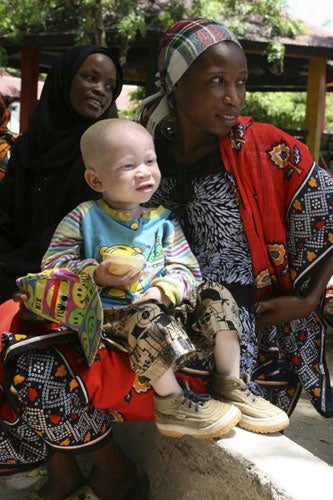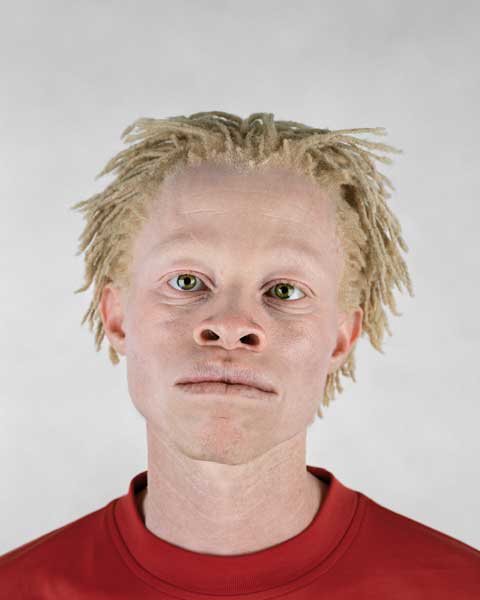Malawi police told to 'shoot' criminals attacking albinos for body parts
Body parts of those who suffer from albinism are prized for their black magic properties in certain regions of East Africa

Your support helps us to tell the story
From reproductive rights to climate change to Big Tech, The Independent is on the ground when the story is developing. Whether it's investigating the financials of Elon Musk's pro-Trump PAC or producing our latest documentary, 'The A Word', which shines a light on the American women fighting for reproductive rights, we know how important it is to parse out the facts from the messaging.
At such a critical moment in US history, we need reporters on the ground. Your donation allows us to keep sending journalists to speak to both sides of the story.
The Independent is trusted by Americans across the entire political spectrum. And unlike many other quality news outlets, we choose not to lock Americans out of our reporting and analysis with paywalls. We believe quality journalism should be available to everyone, paid for by those who can afford it.
Your support makes all the difference.Police in Malawi have been ordered to shoot anyone attacking or abducting albinos in a bid to curb the killing of those affected by the condition.
At least 15 albinos, mainly children, have reportedly been wounded, abducted or killed in East Africa over the past six months with a marked increase seen in Malawi, Tanzania and Burundi.
Their body parts are desired by witch doctors for use in black magic potions and spells, said to bring love, luck and wealth.
UN officials said that at least six attacks on albinos were reported in Malawi in the first 10 weeks of 2015 compared to four incidents over the past four years. They warned gangs have begun roaming the southern district of Machinga on the hunt for victims.
Albinism is a genetically inherited condition that leaves the body unable to produce melanin, the pigment that colours skin, hair and eyes.
The order to shoot attackers came from Malawi’s Inspector General of Police Lexen Kachama.
He instructed police to "shoot every criminal who is violent when caught red-handed abducting people with albinism.
“We cannot just watch while our friends with albinism are being killed like animals every day. We do realise that these people are ruthless, have no mercy and therefore need to be treated like that.”
The order follows a UN statement last month which condemned the killing of albino and warned of the sharp increase of murders.
Tanzania banned witch doctors in January 2015 following accusations of killing albinos and the country also sentenced four people to death for the killing of an albino woman.
200 witch doctors have since been arrested.

Albino rights activists have called for greater protection of albinos but said that killing suspects was unlikely to deter criminals offered large sums of money for securing body parts as they were likely to still take the risk for the promised reward.
Witchdoctors have been known to pay as much as $75,000 for a full set of albino body parts, according a report by the Red Cross.
Vicky Ntetema, executive director of Under The Same Sun, a Canadian non-profit organisation that defends albino rights told Reuters that, though the organisation wanted justice for the people kidnapped, mutilated and killed, killing the attackers was not the answer:
“We have to remember that all those goons caught red handed are small-fish agents and executors of the big sharks out there.
“Killing them on the spot is not going to help us catch the inducers, those with money to hire these gangs who continue to terrorise innocent people with albinism and their families.”
According to the UN report and police figures the plight of those with albinism in East Africa has worsened in recent years and there are fears that an election in Tanzania later this year will prompt more attacks as politicians seek luck at the ballot box.
Last month UN High Commissioner for Human Rights Said Zeid Ra’ad Al Hussein urged African governments to combat impunity for those who commit crimes against people who suffer from albinism.
Albinism affects around one in 20,000 people worldwide. It is most common in sub-Saharan Africa and affects around one in 1,400 people in Tanzania.
Join our commenting forum
Join thought-provoking conversations, follow other Independent readers and see their replies
Comments